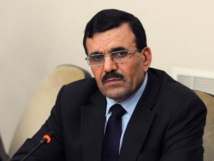Tunisia: three months of political crisis
AFP
TUNIS- Tunisia has been plunged into a deep political crisis since the July 25 assassination of opposition leader Mohamed Brahmi, ahead of hard-won negotiations starting Wednesday.
Authorities say he was killed with the same weapon used to gun down another opposition politician, MP Chokri Belaid, in February.

Here is a timeline of the political crisis unleashed by the two deaths:
--2013--
- July 25: Brahmi is shot dead outside his home near Tunis. His family blames Ennahda, which denies the charge. Hundreds demonstrate in Tunis and in the provinces, notably in Sidi Bouzid, Brahmi's birthplace.
- July 26: Tunisia marks a day of mourning for Brahmi, with a general strike bringing Tunis to near standstill.
- July 30: Prime Minister Ali Larayedh insists the government will stay in office, as protests demand his administration's ouster.
Since the assassination of Brahmi, supporters and opponents of the government rallied each evening after the end of the month-long Ramadan daily fast to demonstrate in Tunis and the provinces.
- August 22: Ennahda says it is ready to negotiate with the opposition on the formation of an apolitical government, but rules out any prospect of the cabinet that it heads resigning imminently, calling first for a "national dialogue" bringing together supporters and opponents of the ruling coalition.
- August 27: Larayedh accuses the main Salafist movement, Ansar al-Sharia, of liaising with Al-Qaeda and carrying out "terrorist" attacks that have rocked the country since the 2011 revolution, including the two assassinations.
- September 7: Thousands of Tunisians take to the streets of Bardo, near Tunis, calling for the government to step down, and marking the end of a 40-day period of mourning after the assassination of Brahmi.
- September 20: Ennahda announces it has accepted in principle an ambitious roadmap proposed by mediators, including from Tunisia's powerful UGTT labour union, to form a government of technocrats and resolve the crisis.
The roadmap is also aimed at introducing a new constitution, electoral laws and setting a timetable for fresh parliamentary and presidential elections to end the political deadlock.
- October 19: Tunisian forces kill nine "terrorists" in the Beja region, 70 kilometres (40 miles) west of Tunis, where two policemen died in a jihadist attack. Since the 2011 uprising that sparked the Arab Spring, Tunisia has seen a rise in attacks by jihadist groups, especially on the border with Algeria.
- October 23: The ruling Islamists and opposition are to begin negotiations, with Larayedh expected to announce his government's resignation.
The opposition demonstrates in the capital.
-----------------------------------------------------------------------------------------------------------